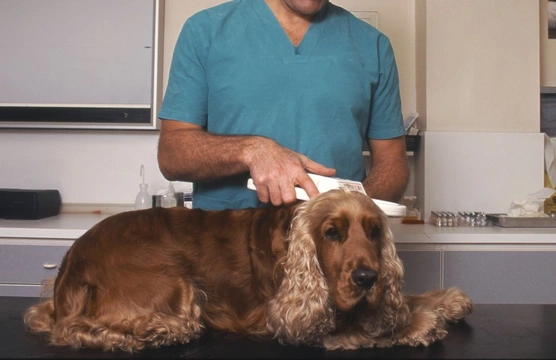
Mandatory microchipping for dogs - what happens if your dog is not microchipped?
Anyone who owns a dog in England or Wales should already be aware that as of the 6th April this year, microchipping became mandatory for all dogs, with no exceptions-which means that if your dog is not microchipped, you are actually in breach of the law. Additionally, there is no get-out or caveat for dogs under a certain age, or if you have just bought or adopted your dog-the UK’s dog microchipping regulations are a blanket law, which even outlines when and how young puppies owned by breeders should be microchipped before they go on to their new homes.
This means that if you are a dog owner in England or Wales, your dog must be microchipped, with no exceptions, and if your dog is not currently chipped (and just as importantly, the information held on the microchipping database about you and your dog must be accurate and up to date) then you must rectify this immediately.
You can find out more about the full details of the regulations here- but what actually happens if your dog is not microchipped or your details are not up to date, and this is discovered? Read on to learn more about some of the potential implications.
If your dog gets lost
First of all, the original purpose of microchipping dogs was of course to make it easier for a lost dog to be returned to their owner, and if your dog is not microchipped, this is exponentially harder to achieve. Ultimately, a lost dog may end up in the hands of the local council’s dog warden or their shelter of choice, and an un-microchipped dog will automatically be considered to be a stray now that the new regulations have come into force.
This means that even if you do find out where your dog has been taken after they have been found, you will not only have to prove your ownership of the dog, which can be challenging without microchip documentation, but also, you will be expected to explain why your dog is not microchipped, and this information will be recorded.
You will then be expected to have your dog microchipped immediately as a condition of being allowed to take them home-and if you do not do this, you will be unlikely to be allowed to retrieve your dog another time if they wander off again.
When you visit the vet
When you take your dog along to the vet for their routine health check and vaccinations or anything else, your vet will scan your dog for their microchip as standard. Currently, there is no enforced regulation on veterinary staff to report un-microchipped dogs to the authorities, although this might change in the future.
However, your vet will explain the law to you and strongly advise that your dog be microchipped immediately-and they can of course at their discretion report you for refusal if you do not comply.
If you have to claim on your third party insurance for a civil matter
If your dog is insured, then you probably have third party liability coverage included as part of this, which means that your insurance company will handle any civil claims made against your dog on your behalf.
However, if your dog is not microchipped, this can provide a potential get-out for your insurance company, should they be looking for one, when it comes to rejecting a claim.
If your dog causes a criminal incident
If your dog is insured, your insurance company will help, support and potentially pay out on a civil claim made against yourself and your dog, should such a thing occur. However, most insurance policies will not intervene or support you in criminal cases that involve your dog, and for a case to be considered criminal, you do not have to have deliberately done something with your dog that is in breach of the law; criminal negligence and failing to properly supervise your dog can be classed as criminal matters too, depending on the severity of the incident.
If something like this should happen, the fact that your dog was not microchipped will almost certainly be brought up in court in support of the prosecution’s case, either as a direct element of the case itself, or as part of building a background case on your responsibility (or otherwise) when it comes to being a dog owner.
If the ownership of your dog is disputed
Ownership disputes over dogs are fortunately rare, but they can crop up from time to time-and microchipping is not taken as definitive proof of ownership in most cases.
However, now that the new law mandates that all dogs must be microchipped and also, that the database reflects accurate, up to date keeper details for the dog, if you are involved in such a dispute, these details will likely carry more weight than they would have done prior to the mandatory microchipping law coming into force.
Responsible ownership
Microchipping your dog is a vital part of responsible dog ownership, and if for any reason your care or ownership of your dog is called into question, this is something that will be considered. Failing to comply with the letter of the law in terms of things like microchipping, keeping your dog under control and providing them with adequate supervision are all factors that can potentially prejudice perceptions of your dog’s care at a later date.
Fines
If you are found to have failed to comply with the microchipping regulations, you will usually be given a short window of opportunity to get your dog microchipped after you are caught. However, if you then fail to microchip your dog after you have received a warning, you can also face a fine of up to £500.



